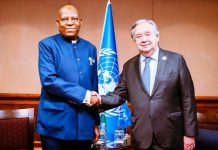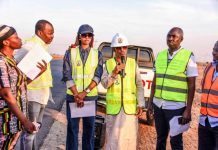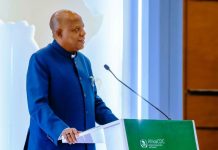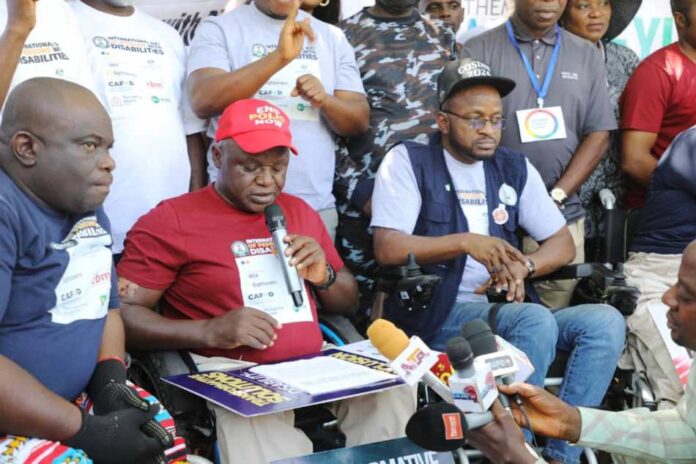
Delivering a speech at the Unity Fountain, after a Walk from the NCPWD headquarters to celebrate the 2024 United Nations International Day of Persons with Disabilities (IDPD), he said his vision is tailored towards achieving the mandate on which the Commission was created.
According to him, the event marked another chapter in the Commission’s quest to redefining disability advocacy and celebration of efforts made by persons with disabilities in the society.
He said the National Commission for Persons with Disabilities (NCPWD) is a creation of the Discrimination Against Persons with Disabilities (Prohibition) Act 2018, with the mandate to protect, promote and enforce the rights of persons with disabilities.
Stating further, he said that this was predicated upon the bedrock of the principle that says that where there is a right, there is a remedy. The Commission is also charged with the responsibility of creating awareness using departments and units to ensure the monitoring of the level of compliance with the Act to carry out enforcement as the case may be, some of which could go as far as sealing defaulting premises and sites.
Hon. Gufwan further stated that under his watch, the Commission shall align itself whole-heartedly with the full actualization of the philosophy and purpose of the Disability Act and NCPWD’s 5-year Strategic Plan (2022-2027).
He said having realized the need to define and develop a National Disability Inclusion Architecture (NDIA), the Commission shall do so to drive the process that will help Nigeria achieve full implementation of the Disability Act at multisectoral scale.
The Executive Secretary said a National Disability Inclusion Architecture (NDIA) will be able to identify and prioritize the core elements or strategic pillars upon which the Commission can build and sustain the very complex process and structures of all encompassing social inclusion for PWDs in Nigeria.
He added that the NDIA will help NCPWD consolidate the institutional and infrastructural foundation required to drive and sustain social inclusion for the over 30 million PWDs in Nigeria.
According to him, the proposed NDIA is anchored on six key pillars namely; strengthening of governance and institutional structure of NCPWD and other institutions and levels of government statutorily involved in implementation of the Disability Act and development of National Disability Database.
Others, he said, include enforcement of physical and digital accessibility across sectors, facilitation of access of PWDs to assistive technologies, support for equal access to employment and economic empowerment and strategic public awareness.
He said in line with the six NDIA pillars listed, the Commission’s quick to-dos within the next one year include sustain and expand on current governance and institutional strengthening interventions where more strategic capacity-building for staff of the Commission and other stakeholders shall be facilitated.
The Executive Secretary said the Commission will set-up more inter-agency collaborative mechanisms between NCPWD and other institutions and levels of government as well as set-up the National Council on Disability and work with the 36 states and FCT to support 774 local government councils to set-up LGA Disability Support Units across Nigeria.
He added that his quick to do is also to develop and finalize the digital infrastructure that will support development of a stand-alone National Disability Database that will be done in collaboration with state and local governments.
Furthermore, he said the Commission will commence a pilot phase implementation of the National Accessibility Regulation, where NCPWD will engage the FCT and 6 states (one each from the six geopolitical zones) to start the first pilot phase implementation of the Accessibility regulation.
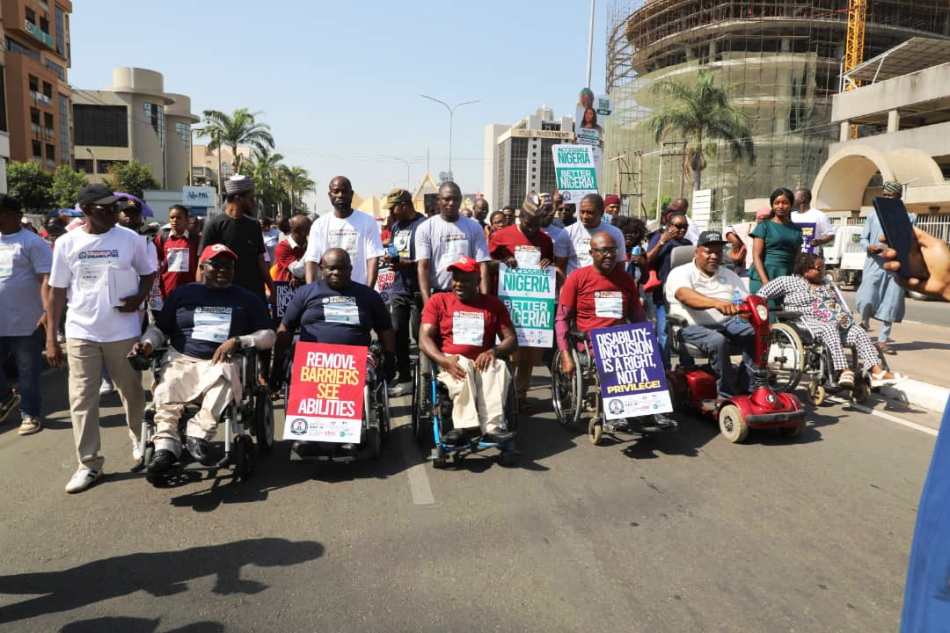
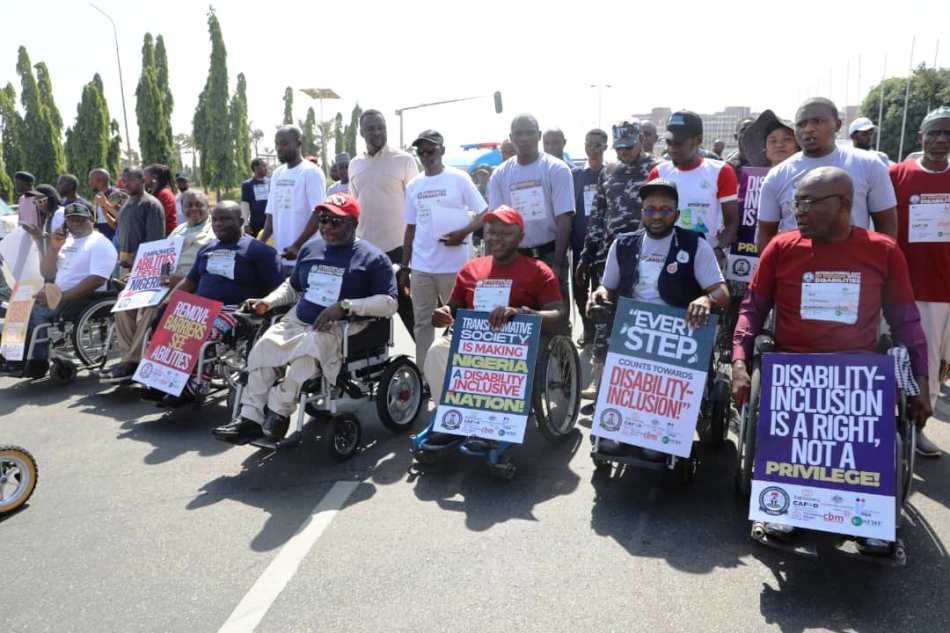
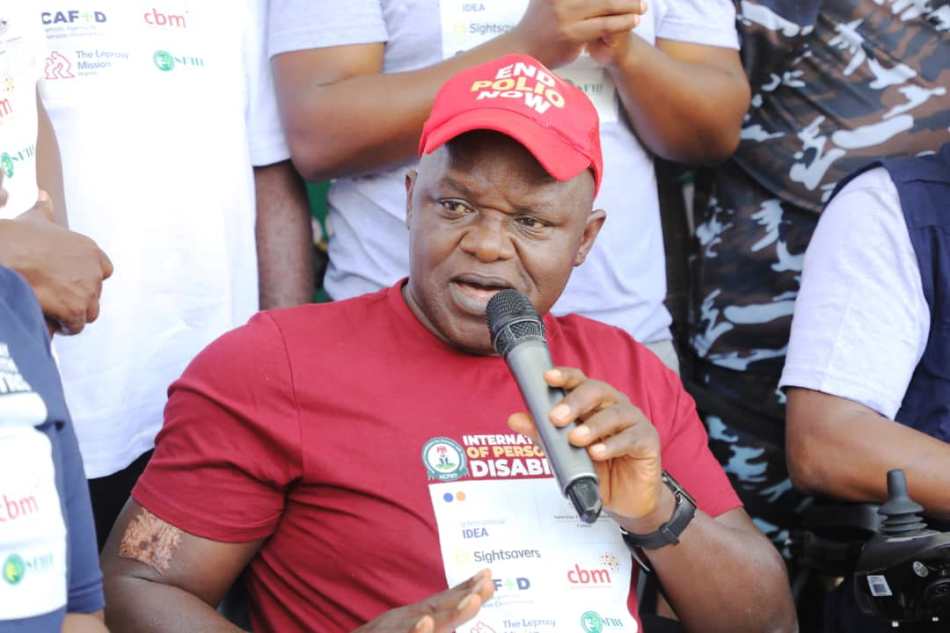
Hon. Gufwan added that the Commission shall initiate the development and implementation of a National Regulation on Access of PWDs to digital infrastructure, Assistive Technologies and Devices through National Summit to harvest relevant inputs from all existing initiatives on assistive technologies, with effort on exploring strategic partnership with international manufacturers and vendors of assistive technologies and devices to create opportunities for development of local capacity.
He said full implementation of the National Framework on Access of PWDs to formal employment will commence and that the NCPWD will kick start strategic engagement with the Nigeria Business Disability Network (NBDN) to explore opportunities for mutually beneficial collaboration.
To align with provisions of the Disability Act, he said the NCPWD will engage with the Federal Ministry of Information and National Orientation to design and implement a robust strategic national public awareness exercise on disability inclusion and continue to produce sectoral regulations, guidelines, standards operating procedures (SOPs) and frameworks in collaboration with federal MDAs with a view to ensuring full compliance with provisions of the Disability Act.
The Executive Secretary said the Commission intends, within the shortest possible time, to seek support of its partners to establish all the six pillars of this National Disability Inclusion Architecture (NDIA).
Touching on progress made so far under his watch as a Commission, he said, he has embarked on disability advocacy, ambitious initiatives, policy reforms, and strategic partnerships to mention a few, all in advancing the rights, welfare, and opportunities for Persons with Disabilities (PWDs) across Nigeria.
According to him, some of the success stories include; Scholarship Scheme Expansion for Inclusive Education to ensure educational inclusivity.
Introduction of NCPWD’s second scholarship scheme for undergraduate students with disabilities studying in public tertiary institutions with the aim to reduce financial barriers, and empowering PWD students to pursue higher education in order to contribute to the society.
He said the Commission’s strategic military collaboration for mobility aids with the Nigerian military highlights some of his proactive approaches to addressing specific needs within the PWD community and that discussions in this regard not only focused on producing prosthetics but also on obtaining mobility aids like wheelchairs and crutches for PWDs across Nigeria.
Another plus, he said, is securing employment opportunities in Civil Service and Colleges of Education to improve opportunities for PWDs.
Hon. Gufwan said the Commission engaged the Federal Civil Service Commission and the National Commission for Colleges of Education (NCCE) to enforce the 5% employment quota for PWDs across all federal and educational institutions to emphasize the need for equitable employment opportunities in both public and academic institutions, breaking down long-standing barriers faced by qualified PWDs in the job market.
He stated that in partnership with the National Directorate of Employment (NDE), the Commission under him secured 3,000 empowerment slots specifically for PWDs which offers training and grants, enabling PWDs to gain vocational skills, achieve financial independence, and foster entrepreneurship.
In line with his vision for educational advocacy, he sought collaboration with the Universal Basic Education Commission (UBEC) to ensure that schools are physically accessible for students with disabilities.
Touching on partnership with the legal system, he said, he has highlighted the urgent need for accessible court environments in a national dialogue with legal stakeholders where he called for resources like ramps, sign language interpreters, and braille materials to make the justice system inclusive for all PWDs.
To embed disability-sensitive measures into Nigeria’s anti-corruption framework, the Commission engaged with the Economic and Financial Crimes Commission (EFCC) to incorporate accessibility into its operations, he said.
Hon. Gufwan said for a more robust budget for the NCPWD, he led a team to meet with Rt. Hon. Speaker of the House of Representatives, Dr. Tajudeen Abbas and proposed a significant increase in the Commission’s budget from N4 billion to an enhanced budget for 2025. Underlining the need to fund scholarships, provision of mobility aids, reconstruction of accessible office facilities, and expansion of medical outreaches.
He noted that the proposal allocates adequate funding per geopolitical zone, specifically for education scholarships, bursaries, empowerment programs, training, and essential mobility aids, such as wheelchairs, motorcycles, crutches, guide canes, braille machines, and hearing impairment devices.
He further stated that he met with the National Salaries, Incomes and Wages Commission (NSIWC) on the need to introduce a disability allowance into the salary structure for PWDs.
According to him, the bold initiative is meant to alleviate the additional financial burden many PWDs face which includes covering costs for essential support like guides, assistants, and interpreters often necessary for PWDs to fulfil job responsibilities effectively.
The Executive Secretary NCPWD also said plans are underway for a comprehensive data on persons with disabilities in Nigeria, having recently met with the leadership of the National Population Commission (NPC) to address the absence of reliable data on persons with disabilities (PWDs) in Nigeria.
He said the Commission understands the urgent need for a detailed demographic data, which would include breakdowns on gender, age, and disability type, noting that such data is essential to budgeting, promoting meaningful inclusion, and developing policies tailored towards the needs of PWDs.
Hon. Gufwan said presently, the NCPWD lacks specific data on the population of persons with disabilities in Nigeria, making it difficult to advocate for adequate support or targeted programs. Hence, the need for accurate information on the number of men, women and children with disabilities, as well as their distribution across various disability clusters.
He said this would significantly enhance the commission’s capacity to support PWDs community effectively.
Also, he said he is happy to state that the National Population Commission has outlined its plans for an advanced digital national census that will utilize over 760,000 tablets to capture comprehensive data including information on PWDs.
This digital approach aims to ensure precise, geo-tagged data across Nigeria, providing local-level insights that will support policies and interventions for persons with disabilities.
He noted that the collaboration between NCPWD and NPC marks a significant step towards closing data gap that will position Nigeria to foster a more inclusive environment where PWDs can receive the recognition and support they deserve.
He commended the Commission’s esteemed partners which include the World Bank, Sightsavers, CBM International, CBM Global, the Leprosy Mission Nigeria, International IDEA (RoLAC), CHAI, and the British Council for their invaluable support and collaboration.
He also appealed to stakeholders to support the Commission’s bold reforms.
Esther Bature, of Sightsavers, one of the major partners of the NCPWD noted that they have been long partners of the Commission since its inception and are happy that the partnership is yielding results.
She said Sightsavers helped in the development of the Commission’s accessibility plan as well as supplying expertise to strengthen institutional capacity for the Commission.
According to her, Sightsavers was also involved in the planning of advocacy for the Commission. Sightsavers thereafter donated 200 guide kits to the Commission.
Signed
Ishaku Kigbu (anipr)
Head Information &
Public Relations Unit, NCPWD



